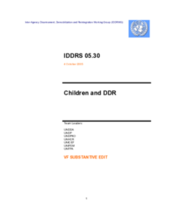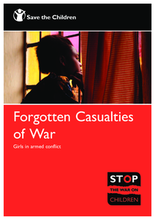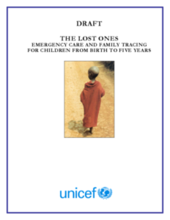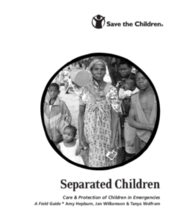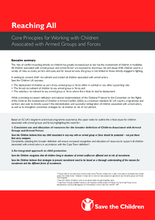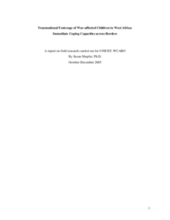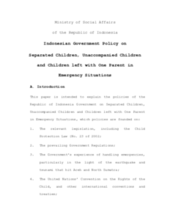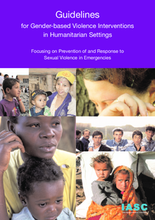Displaying 121 - 130 of 154
Guidance on planning and implementation of child-specific disarmament, demobilization and reintegration (DDR) programming in a peacekeeping environment. Includes definitions, roles for child protection agencies, and key programming considerations on prevention of recruitment.
Examines the planning, coordination, and early implementation of UNICEF’s programme to demobilize and reintegrate war-affected youth in the context of Afghanistan’s reconstruction process.
Examines child protection issues for young girls associated with armed groups. Provides comprehensive policy recommendations.
Guidelines for the care of young children separated from their families in emergencies. Includes detailed information on prevention of separation, child registration and documentation, and family reunification.
Guidance on preventing child separation, interviewing separated children, and programming for their care and protection needs. Contains specific information on temporary and longer term care options.
Outlines the critical issues for children associated with armed conflict. Includes recommended strategies for preventing child recruitment and promoting reintegration.
A research study conducted with refugee children from Côte d’Ivoire and Liberia, and their foster caregivers in rural Guinea. Explores the experiences of both children and foster caregivers, and examines the role of ethnicity, gender and education. Highlights the significant capacity of a community to provide protection and care of refugee children, and offers recommendation for future research and programming.
Examines current conceptual and practical issues relating to reunification of street children with their families. Includes guidelines for organisations operating or starting reunification programmes and suggests directions for future research.
Indonesian policy paper on the practice principles for separated and unaccompanied children in an emergency, including guidance on short and long-term care arrangements, tracing, and family reunification
Comprehensive guidelines for dealing with the planning, establishment, and coordination of multisectoral interventions to prevent and respond to sexual and gender-based violence.

